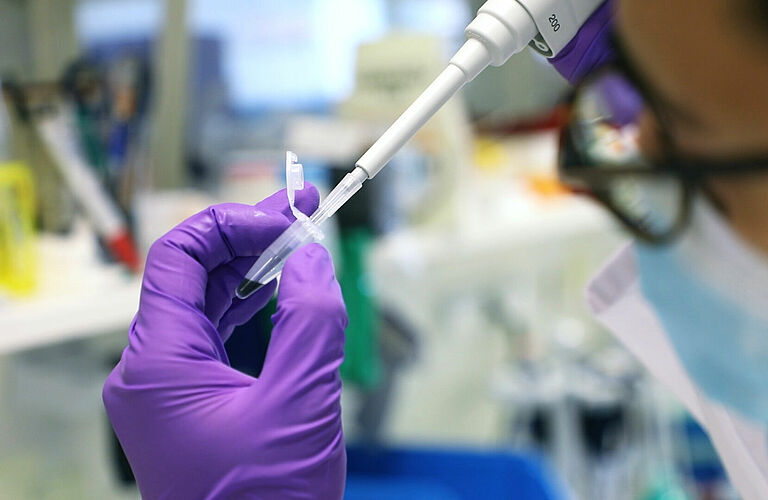Research at the DZNE
DZNE researches neurodegeneration and the wide range of diseases it triggers. In addition to Alzheimer’s and Parkinson’s disease, this also includes less common diseases such as frontotemporal dementia, amyotrophic lateral sclerosis (ALS), spinocerebellar ataxia, and childhood dementia.
Damaged neurons
The term “neurodegeneration” stands for a pathological, progressive process in the consequence of which neurons are damaged. Degeneration disrupts their function and they may ultimately die off. This development can lead to dementia, cause movement disorders, and severely affect health in other ways as well.
Unresolved issues
So far, there are no therapies that could stop or even slow down the death of neurons. Current treatments can, at best, alleviate symptoms of disease. There is also no effective early diagnosis, and the causes of neurodegeneration are poorly understood – especially as each neurodegenerative disease has its own specifics. Moreover, these diseases not only affect patients; they also place an enormous burden on the many family members who are involved caring for their sick relatives each and every day. The situation therefore calls in addition to better therapies also for novel concepts in health care that improve the quality of life of all affected individuals.
We research these diseases
Multidisciplinary approach
In light of these many open questions, the DZNE pursues an interdisciplinary scientific strategy that covers five interconnected research areas: Fundamental Research, Clinical Research, Health Care Research, Population Health Sciences, and Systems Medicine. The DZNE is thus dedicated to exploring the entire spectrum: from investigating the molecular processes of disease in the laboratory to conducting human studies in humans. Moreover, we look into protection and risk factors in the population, and develop interventions for care and treatment. All these activities are part of our overall strategy, which strives to effectively link all research areas for maximum impact. After all, Because we aim that findings from research are applied in medicine our purpose is to ensure that research findings are applied in the medical field and in everyday life – and substantially improve the situation of patients and their families. Such efforts to build a bridge between science and practical application is called “translation”.
This is our commitment – day after day.

